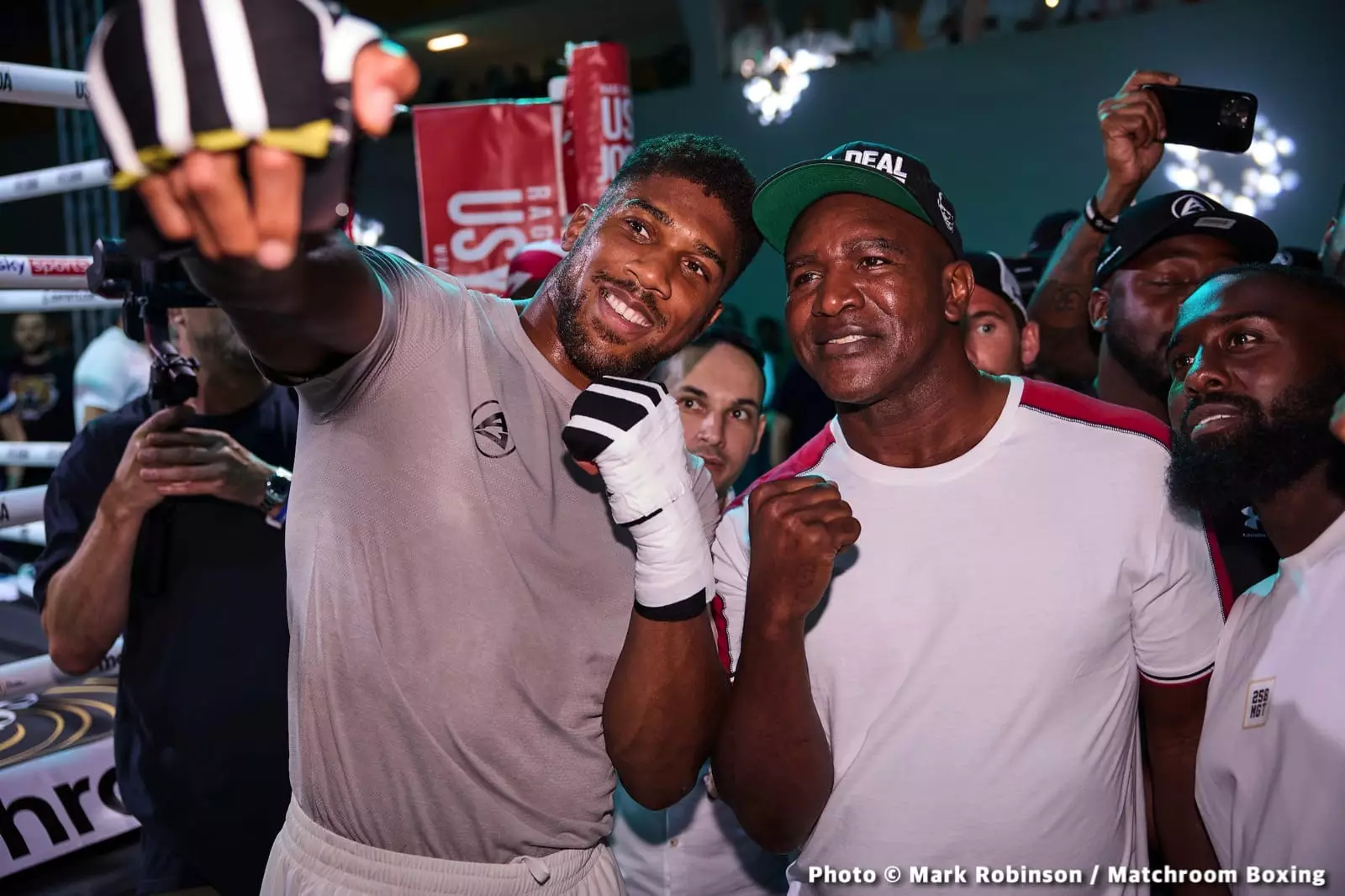Recently, during the Ring Magazine Awards in London, boxing legend Evander Holyfield shared his thoughts on his legacy in the heavyweight division. Speaking with Radio Rahim of Seconds Out, Holyfield, a former unified cruiserweight and heavyweight champion, expressed his frustration regarding the lack of recognition he believes he should receive as the only four-time heavyweight champion in history. He made the claim that he should be regarded as the premier heavyweight of all time, surpassing the legendary Muhammad Ali. While Holyfield’s achievements are indisputable, the broader context of the sport reveals a more intricate narrative about greatness in boxing.
Holyfield’s assertion stems from his impressive record of holding the heavyweight title four times across different eras: he was the undisputed champion from 1990 to 1992, held the WBA and IBF titles during two additional reigns from 1993 to 1999, and secured the WBA title once again in 2000. His achievements compelled him to declare that he surpassed Ali, who had held the heavyweight title three times. But does the number of titles alone determine the best in the sport?
It’s imperative to note that the context of title reigns is crucial. Ali fought during a time when there was a singular recognized heavyweight champion, whereas Holyfield’s era was characterized by the existence of multiple sanctioning bodies and belts. Such fragmentation of the heavyweight title arguably dilutes the significance of the number of titles won. While Holyfield’s achievement is monumental, boxing history suggests that the ability to unify titles against the best competition is a significant factor in determining greatness.
When evaluating greatness in boxing, the question of who you defeat becomes paramount. Holyfield’s victories over fighters like Buster Douglas, Riddick Bowe, and George Foreman are significant, underscoring his resilience and skill within the ring. However, Ali’s record includes wins against formidable opponents such as Sonny Liston, Joe Frazier, and George Foreman as well, earning him an iconic status.
One could argue that Ali’s sophomore victory against Frazier, known as the “Fight of the Century,” holds weight in the annals of boxing history not only for its intensity but also for its cultural impact. Such monumental moments elevate Ali’s career beyond a mere statistical comparison, a layer of context that Holyfield’s accomplishments may lack. This doesn’t diminish Holyfield’s status, but it emphasizes that the conversation is complicated, requiring more than just figures to establish who stands as the greatest.
Holyfield’s frustration underscores a narrative he feels is predominantly overlooked: the historical significance of his record-breaking four-time championship. His belief is compounded by the fact that boxing culture often prefers to glorify figures like Ali, partly due to the social and political dynamics associated with his career. Ali transcended boxing; he became a symbol of resistance, which added layers to his legacy that can often overshadow purely athletic triumphs.
Critics might argue that while the four-time tally is a remarkable feat, it shouldn’t solely define the narrative of boxing’s greatest. Holyfield might not have enjoyed the same level of cultural icon status as Ali, impacting how history remembers them. This lack of recognition can lead to a prominent athlete feeling sidelined or misrepresented. Nevertheless, it’s essential in sports history to evaluate figures based on multifaceted criteria, not just statistics.
In boxing, debates over who is “the greatest” are often subjective and fluctuating. The advent of numerous titles and fighters achieving success across different weight classes complicates definitive rankings. Considerations must be made for not just achievements but also the caliber of competition and the eras in which fighters competed.
Ultimately, Holyfield’s clarion call for recognition is a reminder of the numerous layers in boxing. His legacy as the only four-time heavyweight champion stands strong, yet establishing one’s place in the pantheon of greatness involves more than just numbers. It requires understanding the narratives that define the sport, the cultural significance behind victories, and how these intertwine to shape the legacies of fighters across generations. Despite being a formidable champion, Ali’s broader impact and historical context continue to shape the conversation on greatness, even as Holyfield endeavors to claim his rightful acknowledgment.


Leave a Reply